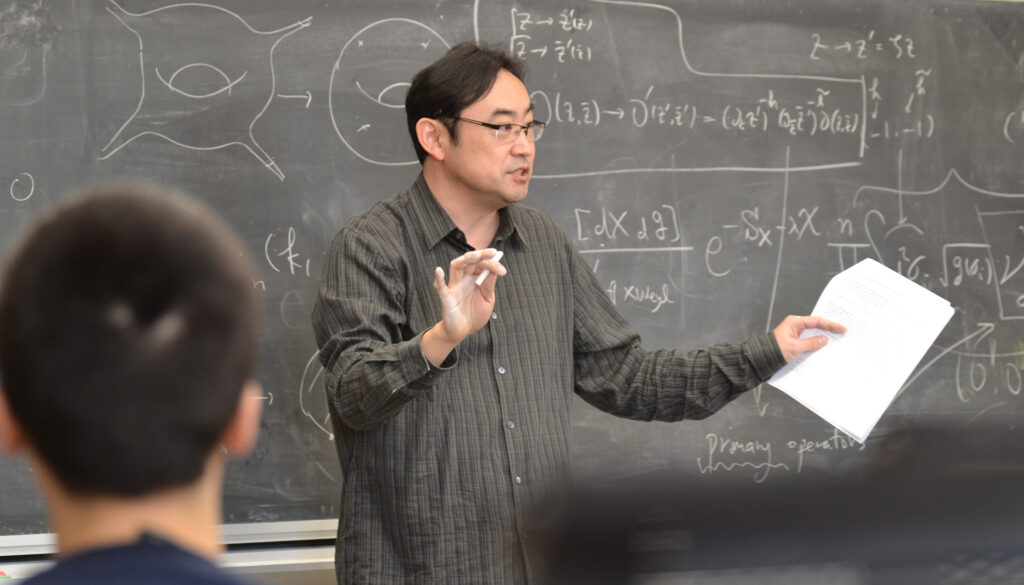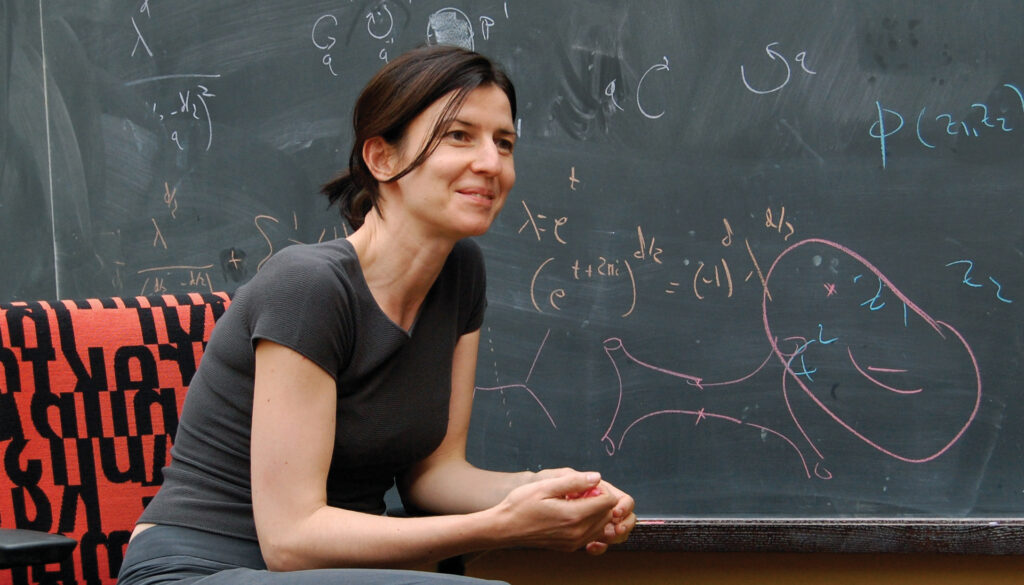The University of California, Berkeley, a world leader in theoretical physics since J. Robert Oppenheimer planted the seed nearly 100 years ago, will share with four other institutions the largest gift ever to the field — $90 million.
The gift from the Leinweber Foundation in Michigan will establish four Leinweber Institutes for Theoretical Physics at the University of Chicago, the University of Michigan, Massachusetts Institute of Technology and UC Berkeley, and the Leinweber Forum for Theoretical and Quantum Physics at the Institute for Advanced Study in Princeton, New Jersey.
The funds will strengthen existing programs and create a network to foster collaboration among faculty members, postdoctoral fellows and students across all the institutions.
“This gift is a commitment to America’s scientific future,” said Larry Leinweber, founder and president of the foundation. “Theoretical physics may seem abstract to many, but it is the tip of the spear for innovation. It fuels our understanding of how the world works and opens the door to new technologies that can shape society for generations. As someone who has had a lifelong fascination with theoretical physics, I hope this investment not only strengthens U.S. leadership in basic science, but also inspires curiosity, creativity and groundbreaking discoveries for generations to come.”
At UC Berkeley, the Berkeley Center for Theoretical Physics will be renamed the Leinweber Institute for Theoretical Physics (LITP) at Berkeley and expanded, primarily by attracting four new postdoctoral fellows — called Leinweber Physics Fellows — who will join the current 15. More than a dozen UC Berkeley faculty members and nearly a half dozen scientists at Lawrence Berkeley National Laboratory are affiliated with the institute, along with more than 30 graduate students.

Courtesy of the Leinweber Foundation
A total of $14.4 million from the foundation will be combined with $3.6 million from UC Berkeley to create an $18 million endowment to support postdoctoral fellows, graduate students, visiting scholars, workshops, conferences, collaboration with other Leinweber institutes and convenings of all the member institutions to explore fundamental questions in theoretical physics.
“This is transformative,” said Yasunori Nomura, director of the LITP at Berkeley and a professor of physics. “The gift will really have a huge impact on a wide range of research at Berkeley, including particle physics, quantum gravity, quantum information, condensed matter physics and cosmology.”
“At a time when many researchers are facing increasing constraints on public funding, this gift is a beacon,” said Steven Kahn, dean of mathematics and physical sciences in UC Berkeley’s College of Letters and Science and a professor of physics and of astronomy. “It represents a bold and meaningful commitment to foundational science. This kind of support gives students and scientists the freedom to ask big questions and pursue discoveries that may take years to unfold, but that ultimately expand the frontier of knowledge.”
What is theoretical physics?
Theoretical physicists attempt to make mathematical sense of the observations and data acquired by experimental physicists, advancing our understanding of nature, but also guiding future experiments.

Sarah Wittmer, Department of Physics
Experimental research alone is insufficient to reveal the fundamental properties of nature, Nomura added. “You usually need guidance from theory to even perform experiments, since experiments are expensive. They complement one another.”
Last century, the theory of quantum mechanics reshaped our understanding of the atomic and subatomic world and helped to explain and guide experiments that eventually led to transistors and the digital revolution. The general theory of relativity predicted many strange properties of gravity and matter that turned out to be true, enabling scientists to model the formation of stars, galaxies and, ultimately, the universe. Theory guides our understanding of superconductors, quantum computers, nuclear reactors and many other technologies. Oppenheimer’s acolytes at UC Berkeley and his colleagues in the Manhattan Project evolved the theory of nuclear fission and fusion, paving the way for nuclear power plants.
“Today, general relativity is needed to regulate GPS because we need to take into account the time delay caused by the gravitational field strength of the earth. A simple laptop is the consequence of technology based on quantum mechanics,” Nomura said. “Initially, those were just theoretical physics curiosities. Who knew what they would become technologically? Theoretical, curiosity-driven physics research is really important.”
Four former faculty members associated with the UC Berkeley theoretical physics group went on to win the Nobel Prize in Physics, while dozens of former postdoctoral fellows and graduate students have become leaders in the field.
“Steven Weinberg, one of the fathers of the standard model of particle physics, which is essentially the basic model describing phenomena in particle physics, was a junior faculty member here when he wrote his seminal paper. Sheldon Glashow, another father of the theory, was also a junior faculty member here. UC Berkeley has made a huge contribution in shaping the field,” Nomura said. “We’re really training young scientists, and this money is going precisely toward that: supporting postdocs, students and young faculty.”

Courtesy of the Department of Physics
Today, research within UC Berkeley’s LITP falls into roughly three buckets: quantum gravity, quantum information and string theory; particle physics and particle cosmology; and condensed matter physics. Ongoing projects include:
- Assistant Professor Geoff Penington using the ideas behind quantum computers to understand what happens to the quantum information in the matter that disappears into a black hole.
- Associate Professor Ben Safdi studying the microscopic nature of the universe’s mysterious dark matter and how to detect potential dark matter candidates, such as axions.
- Professor Mina Aganagic exploring mirror symmetry within the context of string theory, which aims to unite the general theory of relativity with quantum mechanics into a “theory of everything.”
- Associate Professor Michael Zaletel seeking to understand the behavior of electrons in quantum materials where entanglement and the strong interactions between electrons conspire to form new phases of matter.
Scientists at the five institutions, the leading centers of theoretical physics in the country, already collaborate frequently, Nomura said.
“Thanks to the Leinweber family, we look forward to a new kind of collaboration, a new relationship with existing institutions and new endeavors beyond what was possible in the Berkeley Center for Theoretical Physics,” he said. “It’s fantastic.”
The Leinweber Foundation is a family foundation dedicated to advancing broader society by investing in three key mission areas: research, education and community. The foundation strives to support innovative and impactful research, expand access to education for students from underserved and rural areas, and support the health and vitality of the community and beyond.

